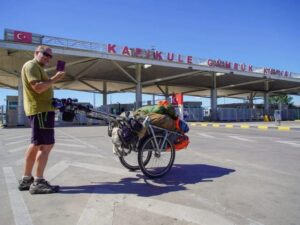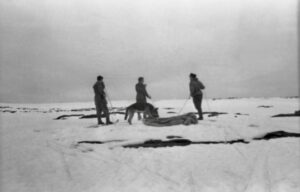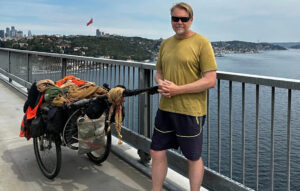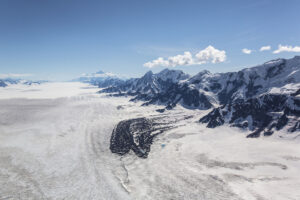In February, Elia Origoni started a 7,000km walk across Italy. All went smoothly until May 29, when he was caught in an avalanche. He suffered three broken ribs, injured ankle ligaments, and nerve damage in his feet.
Rather than hurrying back on the trail prematurely, Origoni went home to rest and repair. One month after the accident, he was back on his feet and hiking the trails around his home.
“The climbs that I used to run are now taken calmly and slowly,” he said. “A little by bike, a little on foot. What matters is to keep the body moving.”
On July 18, just seven weeks after the avalanche, he picked up his old route. He started walking from Passo della Forbice and immediately saw signs warning him that winter avalanches still blocked the way. Origoni headed to the site of the avalanche to look for some equipment he lost in the slide. He found his poles and glasses, but not his phone or sleeping pad.
He proceeded along a ridge toward Pradarena Pass. For the first few days, he tired more quickly, and climbs were more taxing. He took his time, often stopping to stretch and massage his legs.

Photo: eliaorigoni.com
Healing but not yet perfect
After a few days, his strength improved. “[It’s] not yet like a month and a half ago, but that’s okay,” he said.
Over the next week, he hiked between the mountains of the Modena, Regio, and Parma Apennines, then entered the Ligurian Alps.
Origoni has now almost reached the end of the Apennines. He will finish this section at the Bocchetta d’Altare, the lowest pass in the range and the geographical point connecting the Alps with the Apennines.
This Thursday, he starts walking in the Alps and is looking forward to being in the “soft” Alps, which will be easier on his legs. By the weekend, he arrives “where the real Maritime Alps begin: Colle di Nava, San Remo, and Laterza”.






